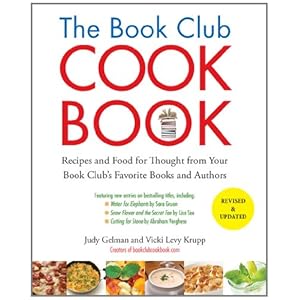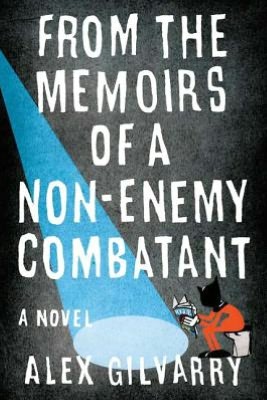--The blurb--
"Whether it's Roman punch with The Age of Innocence, Sabzi Challow (spinach and rice) and lamb with The Kite Runner, or ambrosia with To Kill a Mockingbird, nothing spices up a book club meeting like great eats. Featuring recipes and discussion ideas for one hundred popular club selections, this cookbook guides readers in selecting and preparing culinary masterpieces that blend perfectly with the literary masterpieces their club is reading. This fully revised and updated edition includes a full-colour, sixteen-page photo insert, and new contributions from a host of today's bestselling authors, offering recipes and commentary from: Sara Gruen's Water for Elephants (Oyster Brie Soup), Kathryn Stockett's The Help (Demetrie's Chocolate Pie and Caramel Cake), Jodi Picoult's My Sister's Keeper (Brian Fitzgerald's Firehouse Marinara Sauce), Annie Barrows' The Guernsey Literary and Potato Peel Pie Society (Potato Peel Pie and Non-Occupied Potato Peel Pie) and Chris Cleave's Little Bee (Post-Colonial Pie)."
--The review--
Books and food are possibly more intrinsically linked than most people realise, and it goes further than just enjoying a few snacks while discussing a good book with friends. Even when my sister and I were children, one of our favourite games was to pile up all of the living room pouffes on the sofa so that they almost touched the ceiling, sit on them, and munch on snozzcumber (=cucumber) and sup on frobscottle (read: lemonade) while watching Roald Dahl's The BFG on the small screen. Call us strange children if you will - but naturally this meant that when I was contacted by Penguin asking if I wanted to review this book (which unites two of my major loves of food and books), I couldn't say yes fast enough.
In truth, the list of new books and recipes that appears on this second edition's cover didn't actually appeal to me much. I hadn't heard of half of the books, and of the half I did know of, I hadn't read them. So for a moment I did wonder how far I would be able to relate to the selection of recipes and books chosen. However, I need not have worried: upon opening the pages, I stumbled upon a veritable treasure trove of books and recipes I recognised, as well as books and recipes that I'd never seen before but really wanted to try and to read.
I started off with an old English classic: Toad-in-the-Hole, from the novel Major Pettigrew's Last Stand. I came away thinking that their Yorkshire pudding mix needed more milk to make it go further, but at the same time I still finished the recipe with a full tummy and a desire to read the book. Other recipes I sampled included a sour cherry pie from The Dive From Clausen's Pier (which I suspect did not benefit from my cheat shortcut modifications; just follow the damn recipe, people), a goat cheese and sun-dried tomato pizza from The Devil Wears Prada (a genius pizza topping that I couldn't believe I'd never tried before, and from a hilarious-sounding book, too), eggplant caponata from Bel Canto (not my favourite book or foodstuff, but my husband loved the dish), and spicy pork, orange, and hoisin wanton cups from Balzac and the Little Chinese Seamstress (which I enjoyed, but would perhaps prefer to make with beef. Now there's an experiment for the future...or not, as the case may be, if my advice on the cherry pie is anything to go by. Listening to my own advice has never been one of my strong points!).
While all of the books mentioned above are modern, the cookbook still contains plenty of recipes from classic novels for the traditional reader, such as To Kill A Mockingbird, The Age of Innocence, Love in the Time of Cholera, and Jane Eyre - all of which I look forward to exploring. The selection, then, and the way it's set up, definitely doesn't disappoint. While the stunning colour photographs could be more spread out throughout the book, rather than just being stuck all together in the middle, this is really my only quibble. I love the input from authors and book groups alike, as well as from the compilers of this book themselves, who are clearly keen readers, and think the idea of an online community that lovers of the cookbook can also enjoy is an inspired idea too.
I truly believe that this collection offers something unique in the world of cookbooks - unless I've been living under a rock for some time, I don't recall seeing any other cookbook like this. As well as being inspired to get the authors' book club cookbook for kids (I'm hoping for some REAL Roald Dahl recipes!), I've also been inspired to do what I suspect was the authors' aim all along: to cook, and to read, and to do both at the same time. Cheers, ladies.
Other works by Judy Gelman & Vicki Levy Krupp
The Kids' Book Club Book (2007)
Table Of Contents (2011)
--cross-posted to Ferret Food and Wines--







